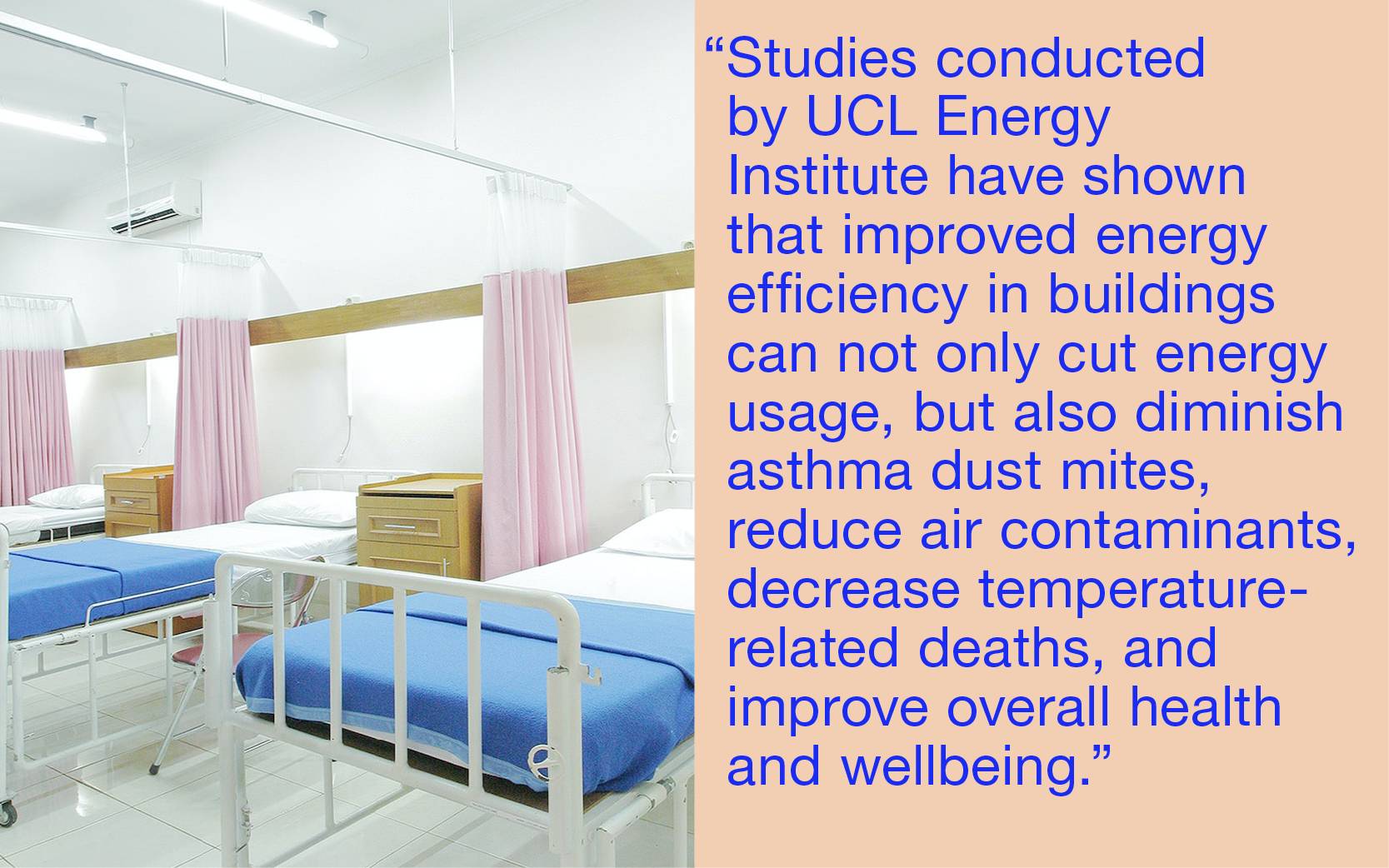Supporting effective responses to climate change to improve health
Research from the UCL Energy Institute at The Bartlett is helping place health at the centre of government’s understanding of climate change through its contribution to The Lancet Countdown.

15 June 2023
The Lancet Countdown: Tracking Progress on Health and Climate Change is disseminated across 54 countries with an estimated audience of 1.8 billion.
This highly influential publication has encouraged fossil fuel divestment of associations totalling close to $100 million, and guided the NHS net zero emissions strategy and implementation plan.
Bartlett researchers have held key strategic roles, and have been involved in writing and preparing this vital report, since 2015.
In particular, Bartlett research is helping to underline the health benefits of effective responses to climate change.
For example, studies conducted by UCL Energy Institute have shown that improved energy efficiency in buildings can not only cut energy usage, but also diminish asthma dust mites, reduce air contaminants, decrease temperature-related deaths, and improve overall health and wellbeing.
Collaborating with experts at the London School of Hygiene and Tropical Medicine, Bartlett researchers have also combined energy efficiency mechanisms into models to help plan low carbon transitions and maximise benefits to health.
This expertise has led to The Bartlett playing a leading role in the global effort to track progress in tackling climate change, and its effect on health, through The Lancet Countdown.

In 2015 The Lancet commissioned a special issue of the journal called The Countdown, published each year just ahead of the UN climate negotiations. The Countdown presents original analysis by over 90 authors from over 40 academic and UN institutions, and tracks 43 key indicators of health and climate change.
The Countdown has had wide-reaching impact. Latest analysis shows that at least 23 national and international health associations, colleges and insurers have voted to cease fossil fuel investments since 2014, with many being directly inspired by evidence from The Countdown.
Evidence in The Countdown has also inspired the World Bank to fund health and climate change research. Meanwhile, a report co-written by Bartlett researchers off the back of their involvement in the Lancet is currently supporting the NHS to deliver a ‘net zero National Health Service’.
In recognition of the crucial intersection of energy, its effects on environmental and climatic conditions, and human health and wellbeing, the UCL Energy Institute has now set up an Energy and Health research group, led by Prof Ian Hamilton and Dr Gesche Huebner.
The group is working with partners such as the UK government, European Environment Agency, European Commission, and World Health Organisation to help influence government thinking on these vital issues.
Further resources
- Read the full story on the UCL Research Impact website
- UCL Energy Institute
- Lancet Countdown
- Delivering a net zero NHS
Contacts
Tadj Oreszczyn
Professor of Energy and Environment
Email: t.oreszczyn@ucl.ac.uk
Dr Ian Hamilton
Professor of Energy, Environment and Health, UCL Energy Institute
Email: ian.hamilton@ucl.ac.uk
Dr Gesche Huebner
Lecturer in Sustainable and Healthy Built Environments, UCL Energy Institute
Email: g.huebner@ucl.ac.uk
 Close
Close

